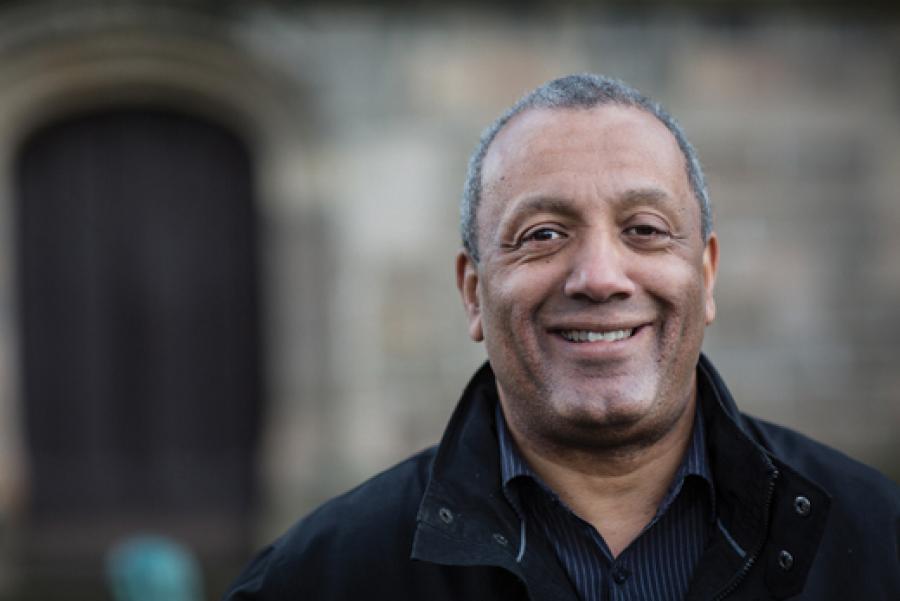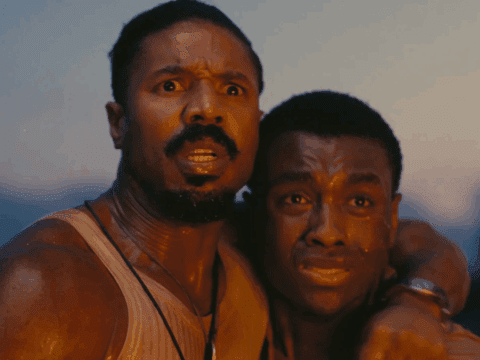Q How do disability and dementia intersect in your work?
A People with profound intellectual disabilities and people with dementia are in the same situation — they are objects of other people’s projection. People say, “Wouldn’t it be awful to be like that?” But how do we know what it’s like to “be like that”? We project loss onto these people. When, for them, it’s the way they have to be, the way they’re comfortable being. The issue of projection is highly problematic.
Q Disability theology is a relatively new field. Can you describe it?
A Disability theology is the attempt by people with and without disabilities to reflect on what it means to be a human being and what it means to be a Christian, looking through the lens of people with disabilities. So I ask, “What does it mean to be fully human and at the same time have a profound disability?” And when you begin asking these questions, you begin to see how culturally bound our understanding of being human is. As soon as you understand people with disabilities — and in particular people with dementia — you realize a lot of the key cultural preferences we have about humanness are quite wrong.
Q What do you mean?
A For example, all of us are deeply dependent on other people. I can only be who I am because other people called me into my identity. I can only be a professor because the university acknowledges that; I can only be a husband because I have a wife. To become who we are, we have to relate to others. The problem for people with disabilities or dementia is that the first thing you think is that these people don’t have reason, that they’re dependent and they need someone to look after them — so they’re unworthy, they’re not persons. But in reality, we are all only persons in relationships; people with disabilities remind us of who we are.
Q How has theology traditionally approached disability?
A The answer to this question is difficult because “disability” is one of those terms everybody uses, and it carries conflict. . . . For example, we have right now a very politicized understanding of disability that I support, when we try to enable people with disabilities to have agency, to have full citizenship in society. . . . Disability shifts and changes across time and context. If you use this contemporary model to look at how Jesus responds to disability, it looks terrible: Jesus is trying to heal disability, and we’re trying to accept it! But actually [our current] understanding of disability didn’t exist then.
Having said that, there’s a profoundly negative strand that runs through the tradition. People with disabilities have, at best, been minority voices in the development of theology, and at worst they’ve been completely silenced.
Q Some people think that people with disabilities are perhaps closer to God, or they never sin, or they deserve charity. What do you make of these stereotypes?
A What I see is people looking for a way to explain things that are confusing or frightening to them. You see something you don’t understand, you give it a name, and then you can control it. Theologically it’s inappropriate.
I’m not comfortable with the idea of setting people apart, because when you set them apart as holy innocence, what you’re really doing is creating another level of difference, another level of segregation. It’s just another way of pushing people to the margins.
Q You’ve written that as a society we develop policies and practices to welcome people with disabilities in our communities — including churches. At the same time, however, we develop technologies designed to prevent them from entering society in the first place, such as genetic testing, or we tolerate the segregation of people in nursing homes and institutions. Should the church have these issues on its agenda?
A I think we should take issue with these ideas. [Philosopher] Martin Buber is clear: he says that in order to love somebody, you need to do something. In order to be complacent with evil, you don’t have to do anything at all. You slide into evil. Once you begin that slide into not thinking, the most horrible things become normal. We do that all the time in our culture. I think what churches need to do is become critically aware and think beyond the normal. Have a real look around and see whether some of the practices toward people are faithful to the traditions we come from.
Q How can churches do that?
A The place to begin is educating clergy about disability. For the most part, clergy are not trained. They come to the parish situation with the same assumptions and expectations as the rest of society — that disability needs to be fixed — rather than asking, “What does it mean to have [a disability] or advanced dementia and be a disciple?”
What you don’t really need is special skills. Often, I hear congregations saying things like, “We don’t have the skills to look after these kinds of people.” But what skills would you need? The skill you need is the ability to take time to be with someone and develop relationships.
The problem we have with society is a real emphasis — and a quite right emphasis — on inclusion. I think at one level that’s fine. However, inclusion is simply not enough. To include people in society is just to have them there. All we have to do is make the church accessible, have the right political structures, make sure people have a cup of tea at the end of the service or whatever. There is a big difference between inclusion and belonging.
Q What’s the difference?
A To belong, you have to be missed. There’s something really, really important about that. People need to long for you, to want you to be there. When you’re not there, they should go looking for you. When things are wrong, people should be outraged — absolutely outraged that people are doing things against people with disabilities.
In order to integrate people with disabilities, you simply have to create a space where they can be there. Make sure you have large-print music, ramps and so on. These are important. But to belong, you have to be missed.
Belonging should be the goal of all communities. Particularly religious communities. The law can build up structures to protect people with disabilities and enhance life, but it can’t make people care for one another. That seems to be a primary thing religious communities can do: create spaces where people can learn to care for one another, even if people are quite different, in some respects, from yourself. And it’s not just for people with disabilities or people with dementia. It’s for all of us; we need to be missed.
Q You spend a lot of time with the people you research. What have you learned that you’d like others to know?
A Well, the one message is that people are people. And that to be human is to be loved. It’s not to have capacities, it’s not to do or not do something; it’s to be able to be loved. Disability in all of its forms is simply another way of being human. . . . Once you learn about people with disabilities, you realize they’re no different from yourself. You could get rid of the term “people with disabilities” and just talk about people.
This interview first appeared in The United Church Observer’s February 2013 issue with the title “‘Inclusion is simply not enough. There is a big difference between inclusion and belonging.'”
















The information here is great and very useful in terms of inclusion in church services of people living with disabilities. I have borrowed a leaf from the information provided article..
Regards